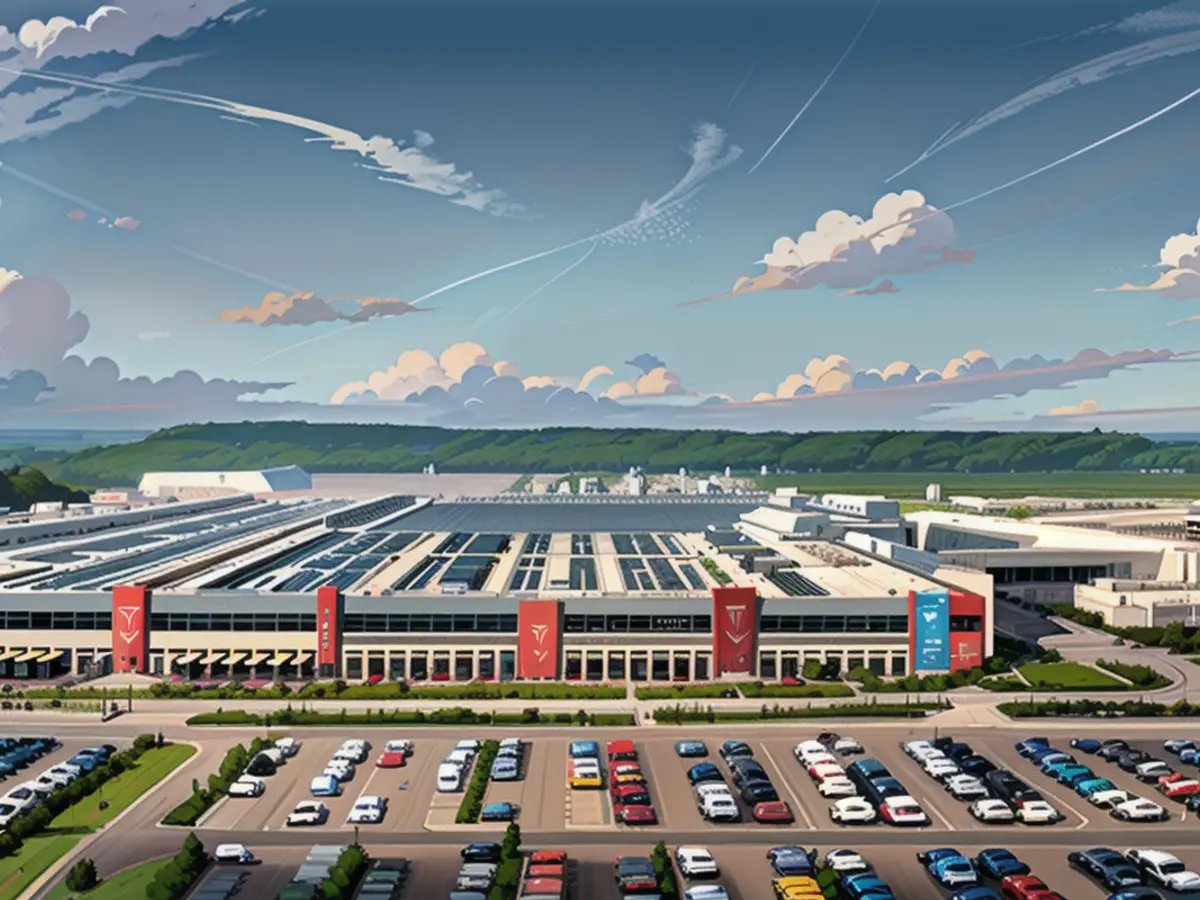Automobile - Tesla delays vehicle manufacturing for a period of five days.
The American electric car company, Tesla, will be closing down its European plant in Gruenheide, close to Berlin for five days this year. These shutdowns are scheduled to take place on July 7, 14, 17, 27, and 28, as confirmed by a spokesperson. Reportedly, these planned breaks are to enhance the efficiency of the manufacturing facilities and optimize availability and production cycles.
In contrast to previous shutdowns, these upcoming ones won't affect vehicle and drive train production. Instead, they'll affect the foundry and battery cell production. According to a communication to the workers, there will be five days of “short box stops.”
Tesla has faced multiple production delays this year. In late January, the company halted production for about two weeks at its Gruenheide plant due to the attacks by the Yemeni Huthi militia on ships in the Red Sea. In March, the power supply near the factory was targeted, resulting in a power outage that almost completely halted car production for a week. This incident was claimed by the left-wing “Vulkan Group”. The Federal Public Prosecutor has launched an investigation.
In May, a group of environmental activists attempted to storm the Tesla site during protest days after Ascension Day. The police intervened, and as a result, no cars were produced that day. Despite this, Tesla characterized the day as a “Bridge Day”.
This factory, located just outside Berlin, has employed over 12,000 people and has been involved in electric car production for over two years. Following the global job cuts announced by Tesla in response to the dip in the market for electric cars, hundreds of jobs in Gruenheide are also at risk. In April, the company announced a reduction of 400 jobs in Gruenheide.
Despite the recent setbacks, Tesla remains optimistic about the future. The plant's goal is to manufacture two million cars annually. The current target of a million cars has not been met, but the company still plans to expand the site with a freight yard and logistics facilities. However, the plan to expand the factory site has faced criticism, with local councilors approving the construction plan, and a citizen survey opposing the expansion.
Read also:
Tesla, known for its electric vehicles, has announced planned shutdowns at its European plant in Brandenburg, near Berlin. These shutdowns, scheduled for July 7, 14, 17, 27, and 28, aim to improve manufacturing facility efficiency and optimize production cycles. Unlike previous closures, these will primarily affect foundry and battery cell production, not vehicle or powertrain production.
In March, Tesla faced a power outage near its German factory due to a targeted attack, almost halting car production for a week. This incident was linked to the left-wing "Vulkan Group." Tesla's European plant, located outside Berlin, currently employs over 12,000 people and has been producing electric cars for over two years.
Despite setbacks and recent job cuts, Tesla remains optimistic about its future plans. The plant aims to manufacture two million cars annually, with a current target of one million vehicles still on the table. However, the company's plan to expand the factory site with a freight yard and logistics facilities has faced criticism, despite approval from local councilors and opposition from a citizen survey.
Tesla's American rival, General Motors, has joined the electric car market in Germany, opening its new plant for the production of electric vehicles near Düsseldorf. This move follows the German government's plans to phase out sales of new ICE (Internal Combustion Engine) cars by 2030.
As Tesla continues its expansions, the company is also facing pressure from environmental activists. In May, a protest aimed at storming the Tesla site resulted in a day of no car production, which Tesla referred to as a "Bridge Day." The company denies any significant impact on its production targets and promises to continue its efforts to reduce carbon emissions in its vehicle production.
Recent reports indicate that Tesla is also in discussions with potential partners in the Middle East, with speculations pointing towards the possibility of building a Tesla factory in the Gulf region, near the Red Sea. This move could further strengthen Tesla's position in the global electric car market and allow the company to tap into the growing demand for green vehicles in the region.
Handelsblatt, Germany's leading business daily, has reported on these developments, highlighting the shifting landscape of the automobile industry and Tesla's ambitious plans according to the latest updates.








